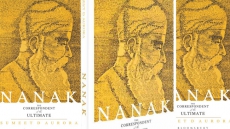OTTAWA - Omar Samad calls the agreement reached this past weekend between the United States and the Taliban a "peace opportunity," not an actual deal.
Afghanistan's former ambassador to Canada says the accord marks the closing of a chapter for his country that began on Sept. 11, 2001, when al-Qaida terrorists hijacked four passenger planes and flew three of them into the World Trade Center in New York City and the Pentagon outside Washington, D.C.
The al-Qaida attacks, enabled by the safe haven Afghanistan's then-Taliban government gave the terrorist organization, was the catalyst that would draw the U.S., Canada and their Western allies into a war that has lasted three times as long as the Second World War.
Now, under the terms of a deal reached over the weekend, the U.S. will begin a withdrawal of about 12,000 troops over the next 14 months if the Taliban can break ties with terrorist groups such as al-Qaida and the Islamic State and prevent the rugged land-locked Central Asian country from being used as a staging ground for future terrorism.
"It's not a peace deal yet," Samad said from Washington, where he is now a senior fellow with the Atlantic Council think-tank. "It's the beginning of the end of a chapter which started after 9/11 but it's a very bumpy road ahead."
That chapter included 13 years of Canadian Forces missions and a five-year period of intense combat between 2006 and 2011, when a reconstituted Taliban insurgency reared its head.
Canada ended its combat mission in 2011 and withdrew the last of its military training personnel in 2014. Some 158 Canadian troops, several aid workers, a diplomat and the Calgary Herald journalist Michelle Lang were killed.
Part of Donald Trump's campaign for the White House included bringing U.S. troops home from what he saw as futile wars.
Afghans of all factions have had enough too, and that's what drew the Taliban to Doha, Qatar to sign this final tentative agreement this past weekend.
"Overall, all sides are tired. The population, as a whole, is not only extremely tired but again feels impoverished and feels insecure," said Samad.
"We have experienced everything in the past 18, 19 years in Afghanistan. At one point, the Canadians were involved and we had all kinds of projects and programs to work with. Some of it was useful, and helpful. Some of it, over time, disappeared. There is not trace of it."
Canada tried to pair its combat mission with a conspicuous attempt at economic and social development projects; well-intended attempts to help educate Afghan children and elevate women and girls subjugated by the Taliban's misogynist ideology; and build wells, roads and dams.
Many of those so-called signature projects became mired in the endemic post-Taliban corruption that took root alongside the influx of NATO troops, including Canada's.
Successive Afghan governments had some important successes, and no shortage of failures, said Samad, who was his country's ambassador to Canada between 2004 and 2009.
Afghanistan has made gains on freedom of expression, gender rights, access to education and health care, "even though there are a lot of issues there," he said.
"But it's all very fragile and threatened by several actors, namely the kleptocracy, corruption, deep-seated corruption, bad governance, weak governance and the lack of a cohesive strategy for the country," said Samad.
In Canada, Samad represented the government of Afghanistan's first, Western-backed, post-Taliban government under president Hamid Karzai as that corruption was taking hold. Samad had only returned to Afghanistan to help rebuild his country after 9/11; he had spent two decades living in the U.S. after his parents fled their homeland following the Soviet Union's 1979 invasion.
Bringing democracy to a country gripped by decades of foreign occupation, civil war and the rise of the Taliban was a daunting challenge that persists to this day.
"Having gone through several very controversial elections since 2004 when the constitution was put in place, people have lost faith in how we run and manage elections because of the deep level of fraud and manipulation. This is a huge problem because it strengthens the hands of extremists, including the Taliban."
Samad realizes Afghans aren't the only people losing faith in democratic institutions around the world these days — "democracy versus populism and stuff like that."
"I don't want to compare apples and oranges. But there are some lessons to be learned from each country's experience," he said. "We are facing demagoguery, we are facing exclusionary polices, we are facing fraudulent elections and fraudulent attempts to manipulate elections."
But Samad said Afghans must learn from their own mistakes, if this next chapter is to succeed.
"In hindsight, we all have issues we have to grapple with … We need some soul-searching and we need to be honest about it," he said. "I hope that this peace opportunity that exists in front of us is going to also be an opportunity to learn from the past."
Samad said his term in Canada came at the "most critical time for Afghan-Canadian relations" and he doesn't want Canadians to think the joint efforts were futile.
"The Canadians did the best they could under the circumstances. Afghans will always remember that. All the sacrifices were definitely not in vain," he said.
"We do have a better Afghanistan today than we did 20 years ago. We just hope we will continue on this path."


